calsfoundation@cals.org
Winthrop Paul Rockefeller (1948–2006)
Winthrop Paul Rockefeller, known in his adopted state of Arkansas as Win (or Win Paul to differentiate him from his father, Winthrop Rockefeller), was a scion of Rockefeller family, which made its fortune with Standard Oil. Like his father, who was the first Republican to be elected governor of Arkansas since Reconstruction, Winthrop Paul Rockefeller established a life in the rural environs of Arkansas before making a name for himself in Republican politics, eventually being elected lieutenant governor. However, his political career was cut short when, at the age of fifty-seven, he died of complications related to a rare blood disorder.
Win Rockefeller was born on September 17, 1948, in New York, the only child of Winthrop Rockefeller and his wife, Barbara Sears Rockefeller, a socialite and daughter of Lithuanian immigrants. Before he started school, he spent much of his time on a farm in Indiana that belonged to his mother’s parents, where he reportedly learned Lithuanian before English. He got his early schooling in New York. His parents underwent an acrimonious and costly divorce, and shortly afterward, in 1953, his father moved to Arkansas.
Meanwhile, Rockefeller soon left the New York schools, ultimately living with his mother in Europe and receiving most of his early education overseas, studying in boarding schools in Switzerland, France, and Great Britain. He eventually returned to the United States, and in 1974 he earned a degree in ranch management from Texas Christian University in Fort Worth, Texas. He and his wife moved to Arkansas in the early 1970s to live on Petit Jean Mountain. Rockefeller took over the leadership of Winrock Farms, the ranch established by his father in the early 1950s. Rockefeller’s father died from pancreatic cancer in February 1973.
In 1971, Rockefeller married Deborah Cluett Sage, also from a prominent New York family, whom he had met while studying in Oxford, England. The couple had three children—Andrea Davidson Rockefeller, Katherine Cluett Rockefeller, and Winthrop Paul Rockefeller Jr.—before divorcing in 1979. In 1983, Rockefeller married Lisenne Dudderar. The couple had five children—including a son and an adopted daughter with Down’s syndrome. In 2000, Rockefeller and his wife established a school in Little Rock (Pulaski County), now the Academy at Riverdale, for children with intellectual disabilities.
Before entering elective politics, Rockefeller followed the family traditions of philanthropy and service, spending two decades engaging in numerous forms of volunteer work. He founded the International Billfish Conservation Foundation, an organization whose mission was to protect billfish, including swordfish and marlin. He also supported numerous literacy efforts, starting the Books in the Attic program in which Boy Scouts collected books to distribute to needy families. Rockefeller was very involved with the Boy Scouts, serving on its national board of directors, as well as the Quapaw Area Council board. Rockefeller was a member of the National Rifle Association, and he sponsored the group’s Project ChildSafe, which distributed free trigger locks to gun owners across Arkansas. He also served on the board of the Nature Conservancy of Arkansas, the Arkansas Cancer Research Center, and the Arkansas Arts Center Foundation. Rockefeller also was a member of the Arkansas State Police Commission for fourteen years, and President George H. W. Bush appointed him to the President’s Council on Rural America, a body he would ultimately chair.
Rockefeller’s Winrock Farms eventually came to include a 7,000-acre cattle ranch on Petit Jean Mountain as well as an additional 17,000 acres in Lonoke County growing rice, soybeans, and wheat. Rockefeller’s business interests went well beyond his farms and ranch and included four automobile dealerships as well as real estate, resort development, and retail.
Rockefeller’s first foray into elective politics came when he won a narrow victory over former state senator Charlie Cole Chaffin for lieutenant governor in the November 1996 special election necessitated by the resignation of Governor Jim Guy Tucker and the elevation of Lieutenant Governor Mike Huckabee to the governorship. As lieutenant governor, Rockefeller was an avid proponent of the state’s economic interests, and he often traveled at his own expense to seek out potential foreign investors, while at the same time donating his own governmental salary to charity. In 1998, voters overwhelmingly elected him to a full four-year term, giving him sixty-seven percent of the vote against Kurt Dilday. Four years later, in 2002, he was again reelected, this time with sixty percent of the vote against Ron Sheffield.
Prohibited by the state’s term limits from serving another term as lieutenant governor, Rockefeller announced his candidacy for governor for the 2006 election. However, in the summer of 2005, he was diagnosed with a blood disease, myeloproliferative disorder, which, if left untreated, could develop into leukemia. Ending his fledgling gubernatorial candidacy, Rockefeller focused on regaining his health. He went to Seattle, Washington, for treatment that included undergoing two bone marrow transplants. These efforts proved unsuccessful, and he returned to Little Rock, where he died at the University of Arkansas for Medical Sciences (UAMS) on July 16, 2006. UAMS named its Winthrop P. Rockefeller Cancer Institute after him.
Rockefeller is buried on the family estate atop Petit Jean Mountain.
For additional information:
Barnes, Steve. “Arkansas Lt. Gov. Winthrop Rockefeller Dies at 57.” New York Times, July 17, 2006. http://www.nytimes.com/2006/07/17/us/17rockefeller.html?_r=0 (accessed May 20, 2021).
Lancaster, Bob. “Like Father, Like Son.” Arkansas Times, August 2, 1996, pp. 10–11.
Nelson, Valerie J. “Obituaries: Win Rockefeller, 57; Billionaire Rancher, Lt. Gov. of Arkansas.” Los Angeles Times, July 17, 2006. http://articles.latimes.com/2006/jul/17/local/me-rockefeller17 (accessed May 20, 2021).
Rains, Judy. “Winthrop Paul Rockefeller.” Arkansas Democrat-Gazette, High Profile, June 8, 1986, pp. 1, 3, 7.
Smith, Doug. “What Winthrop Rockefeller Left Behind. And What He Didn’t.” Arkansas Times, March 28, 2012. http://www.arktimes.com/arkansas/what-winthrop-rockefeller-left-behind/Content?oid=2140415 (accessed May 20, 2021).
Wickline, Michael R. “Lt. Gov. Rockefeller Dies of Illness at 57.” Arkansas Democrat-Gazette, November 17, 2006, pp. 1A, 4A.
———. “Rockefeller Is Remembered for Courage, Public Service.” Arkansas Democrat-Gazette, November 17, 2006, p. 5A.
“Win Paul Rockefeller.” Character Collection, University of Arkansas at Little Rock Center for Arkansas History and Culture. https://ualrexhibits.org/characters/an-addition-to-the-famous-family-wp-rockefeller-1/ (accessed May 18, 2023).
William H. Pruden III
Ravenscroft School



 Rockefeller Memorial
Rockefeller Memorial 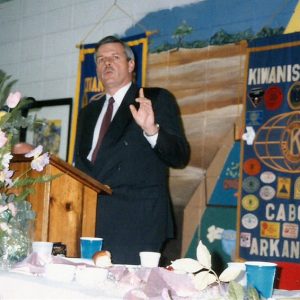 Winthrop Rockefeller
Winthrop Rockefeller 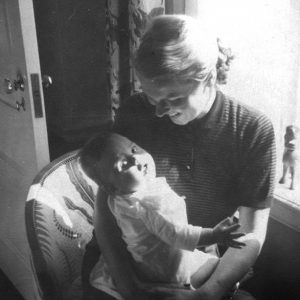 Winthrop Paul Rockefeller and Barbara Sears Rockefeller
Winthrop Paul Rockefeller and Barbara Sears Rockefeller  Winthrop Paul Rockefeller
Winthrop Paul Rockefeller 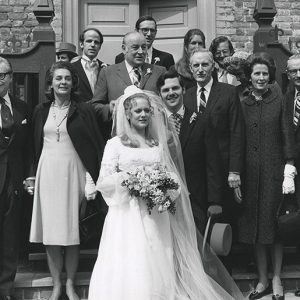 Winthrop Paul and Deborah Sage Rockefeller
Winthrop Paul and Deborah Sage Rockefeller 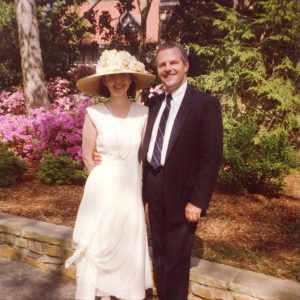 Lisenne and Winthrop Paul Rockefeller
Lisenne and Winthrop Paul Rockefeller 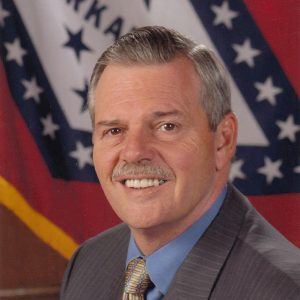 Winthrop Paul Rockefeller
Winthrop Paul Rockefeller  Winthrop Paul Rockefeller Button
Winthrop Paul Rockefeller Button  Winthrop Paul Rockefeller Brochure
Winthrop Paul Rockefeller Brochure 



I was fortunate to drive Winthrop Paul Rockefeller around on numerous visits to Crittenden County, Arkansas, and witness him speaking. Fortunate to have spent time with him. Long live WinRock!
Right down the street from the plaza on Commerce Street, my dad, Jay Haley, gave Win Paul his first haircut, at Jays Barber Shop. Dad said he was a “feisty little fellow.”
I knew Win a little bit at Oxford. (Oriel College, Oxford 1967-70) He was very civilized but straightforward and down to earth. He was entertaining, teasingly ironic in style, and generous of heart–but he wasn’t brilliant at three card stud! What a shame he died so young.
My brother Buren loved Win Paul. I met him several times. I admire him. It’s a tragic loss for him to pass on before he accomplished many of his passions. Arkansas lost a dear friend and statesman.